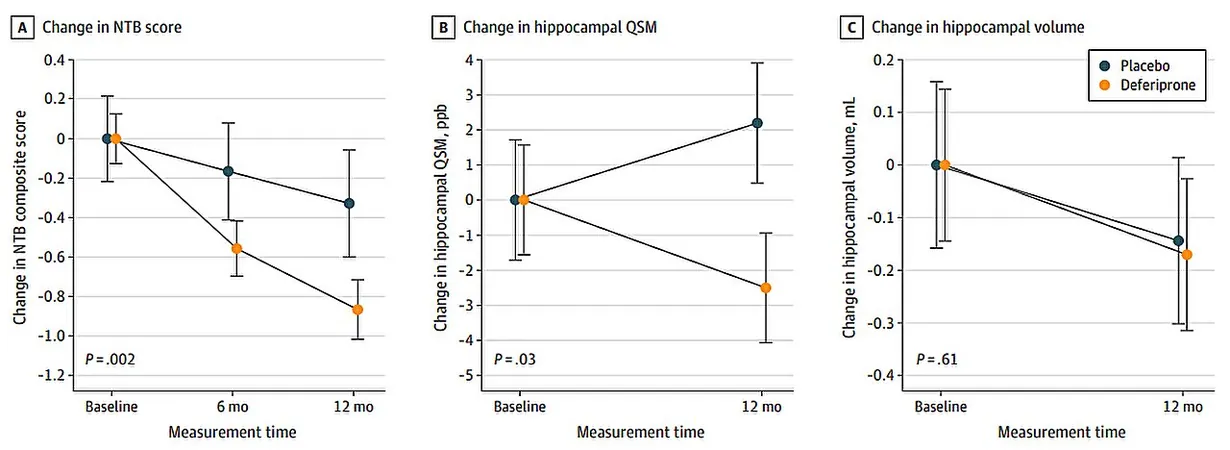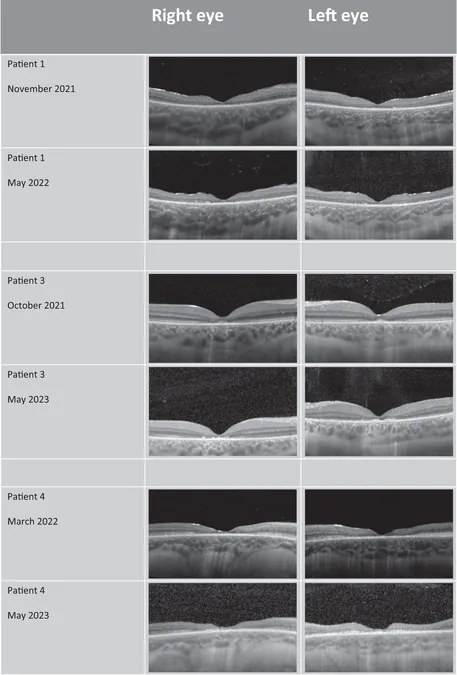
Shocking Alzheimer’s Trial Reveals Deferiprone Might Worsen Cognitive Decline!
2024-11-11
Author: Wei Ling
A groundbreaking study led by researchers from the University of Melbourne has unveiled a startling conclusion: the iron-reducing drug deferiprone may actually accelerate cognitive decline in patients with early-stage Alzheimer's disease. This revelation challenges the prevailing notion that targeting brain iron levels could be a viable treatment strategy for Alzheimer’s—a condition that poses a significant global health threat with few effective treatments available.
Alzheimer's disease is notorious for its devastating impact on memory and cognitive functions, creating an urgent demand for effective therapies. Previous research linked iron build-up in the brain to Alzheimer's pathology, leading scientists to explore iron-reducing agents like deferiprone as potential treatment options. Deferiprone is an oral iron chelator known for its ability to cross the blood-brain barrier, and initial hypotheses suggested it could slow the progression of neurodegeneration by diminishing iron levels in the brain.
In the rigorous clinical trial titled “Deferiprone in Alzheimer Disease: A Randomized Clinical Trial,” published in JAMA Neurology, 26 institutions collaborated on a phase 2, double-masked, placebo-controlled study. The trial involved patients diagnosed with amyloid-confirmed mild cognitive impairment or early Alzheimer's, with participants randomly assigned to receive either deferiprone (administered at a dose of 15 mg/kg twice daily) or a placebo over a span of 12 months.
Researchers conducted comprehensive assessments of cognitive performance utilizing a neuropsychological test battery that included memory, executive function, and attention metrics, along with evaluating brain iron levels through advanced imaging techniques such as quantitative susceptibility mapping magnetic resonance imaging (QSM MRI).
To the researchers' shock, results demonstrated that those receiving deferiprone experienced a significant acceleration in cognitive decline compared to the placebo group, particularly in tests measuring executive functions—pivotal for decision-making and problem-solving activities. Although deferiprone effectively lowered iron levels in the hippocampus, the treatment did not mitigate hippocampal volume loss and was unexpectedly associated with increased volume loss in other regions of the brain, notably the frontal areas.
Compounding concerns, the study identified a notable increase in neutropenia—characterized by reduced neutrophil levels—in patients receiving deferiprone, raising serious questions about the drug's safety profile for individuals with Alzheimer’s.
These shocking findings upend the earlier understanding of iron's role in neurodegeneration, suggesting it may have far more complex implications than previously considered. With Alzheimer's disease representing a growing health crisis, these results not only necessitate further investigation into iron modulation approaches but also the exploration of alternative therapeutic avenues.
As the scientific community grapples with these revelations, there is a renewed urgency to seek innovative strategies to combat Alzheimer’s disease, an ailment that afflicts millions worldwide. Could it be time for a reassessment of our approach to treating this relentless disease? Stay tuned for more insights as researchers continue to probe these unexpected outcomes!







 Brasil (PT)
Brasil (PT)
 Canada (EN)
Canada (EN)
 Chile (ES)
Chile (ES)
 España (ES)
España (ES)
 France (FR)
France (FR)
 Hong Kong (EN)
Hong Kong (EN)
 Italia (IT)
Italia (IT)
 日本 (JA)
日本 (JA)
 Magyarország (HU)
Magyarország (HU)
 Norge (NO)
Norge (NO)
 Polska (PL)
Polska (PL)
 Schweiz (DE)
Schweiz (DE)
 Singapore (EN)
Singapore (EN)
 Sverige (SV)
Sverige (SV)
 Suomi (FI)
Suomi (FI)
 Türkiye (TR)
Türkiye (TR)